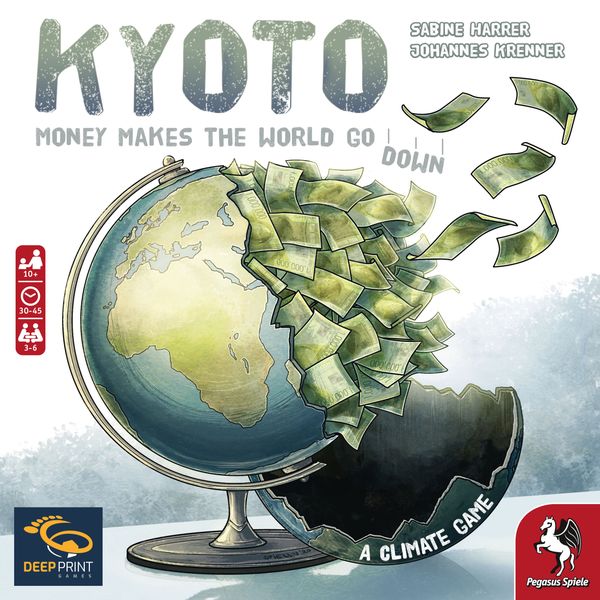Kyoto (2020) Board Game
Kyoto is a board game that was released in 2020, designed by Sabine Harrer and Johannes Krenner. It is published by Deep Print Games and falls under the categories of Environmental and Negotiation games. The game revolves around the concept of managing resources and negotiating with other players to succeed in building the most beautiful city.
Game Components of Kyoto
How To Setup Kyoto
To set up Kyoto, each player selects a country and receives three agenda cards, from which they discard one. The study deck is shuffled and placed on the lectern. Players start with a set amount of money. The environmental damage tokens are set up according to the initial state of the planet. The affluence cards are distributed equally among the players.
Gameplay Mechanics and Game Objective
Player Experience
Playing Kyoto is a tense and strategic experience, especially during the negotiation rounds. The 90-second timer adds a layer of urgency, forcing players to make quick decisions and negotiate effectively. The game requires a balance between personal agendas and the collective goal of saving the planet. Players must navigate the risks of environmental damage and the benefits of preserving wealth, making each round a challenging and engaging experience.
Pros
Cons
Personal Thoughts on Kyoto
Kyoto is ideal for players who enjoy negotiation and strategic games with a strong environmental theme. It’s suitable for those who appreciate the challenge of balancing personal goals with collective responsibilities. The game is particularly good for groups interested in environmental issues and looking for an educational yet entertaining experience. However, it may not be the best fit for players who prefer simpler, less time-pressured games.
We are supported by our audience. When you purchase through links on our site, we may earn an affiliate commission, at no extra cost for you. Learn more.

